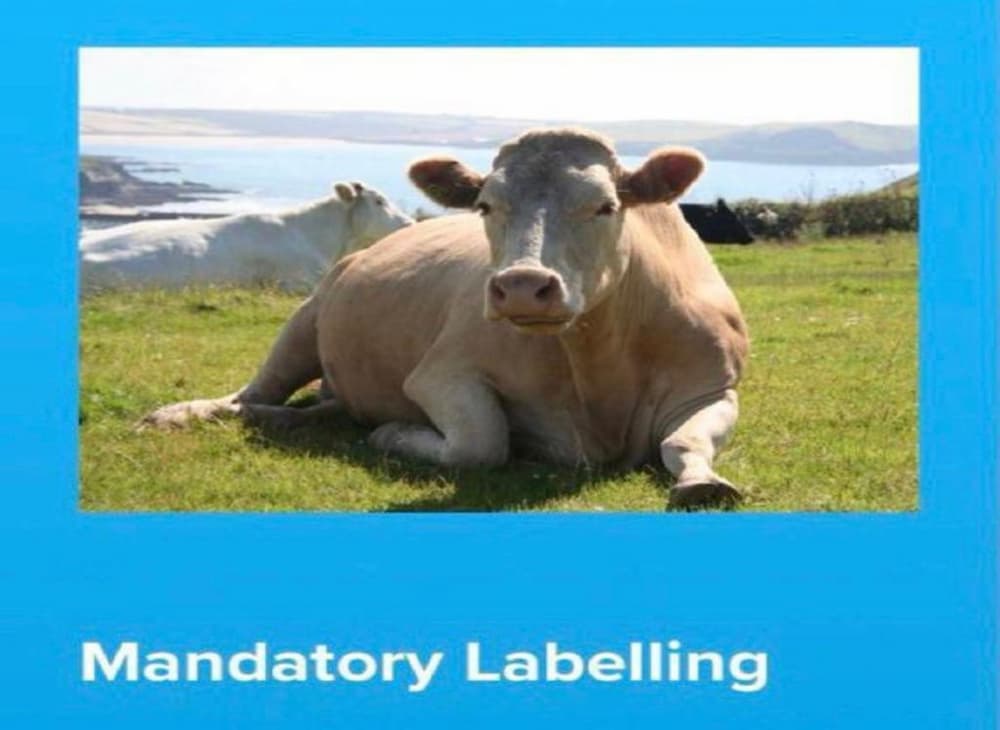The Conservative Animal Welfare Foundation (CAWF) has today responded to the Government’s Food Strategy Policy Paper. This comes following Henry Dimbleby’s report published last year on the UK food system.
The Government’s Food Strategy for England was presented in Parliament by Environment, Food and Rural Affairs Secretary of State the Rt Hon. George Eustice MP.
Part of the Strategy includes the launch of a Food Data Transparency Partnership which will empower consumers with information about the food they consume. The Conservative Animal Welfare Foundation has welcomed this measure, and the commitments it includes to:
- Consult on proposals to improve and expand current mandatory labelling requirements to help consumers identify when products meet animal welfare standards. This will include both domestic and imported products.
- Consult on implementing mandatory public reporting against a set of health metrics and explore a similar approach to sustainability and animal welfare.
- Explore whether existing country-of-origin rules can be strengthened by mandating how and where origin information is displayed.
The Strategy also commits to releasing a statement on the independent animal health and production regime which will inform Free trade Agreement (FTA) negotiations, setting out standards for the trade agreements the UK enters into.
Mandatory animal welfare labelling is something CAWF has long campaigned for in order to ensure greater consumer transparency and enable the public to make informed decisions about the type of food they purchase. You can read the Conservative Animal Welfare Foundation report on mandatory labelling here.
The Government’s Food Strategy also set out ways it will support expansion of the seafood industry and help it to “fulfil its potential within the food sector”. The Conservative Animal Welfare Foundation believes this further heightens the need to ensure the welfare needs of fish and other aquatic animals are being met across the industry.
This includes mandatory CCTV in fish slaughterhouses and the establishment of legal protection equivalent to the protections afforded to land-based farmed animals. Given the predicted growth of the seafood industry, there should also be a greater focus on the use of millions of ‘cleaner fish’ on salmon farms, which are currently used for their cleaning tools before being discarded at the end of every production cycle. You can read the CAWF report on mandatory CCTV in fish slaughterhouses here, and the report on cleaner fish here. The CAWF report on fish welfare can be found here.
The full Government Food Strategy can be found here.
Lorraine Platt, Co-Founder of Conservative Animal Welfare Foundation, commented: “The introduction of mandatory labelling as part of the Food Data Transparency Partnership would empower the public to make informed decisions about the food they purchase and the animal welfare standards which have been met in production. We are pleased to see the Government today commit to consulting on mandatory labelling requirements, and more broadly bring measures into effect which will strengthen transparency for consumers in England.
“We look forward to the publication of the animal health and production regime which will set out the Government’s standards in negotiating Free Trade Agreements. We strongly believe that it is critical that we do not comprise on protecting animal welfare standards in the trade agreements we sign, and ensure other countries are held to the same principles. We hope that this regime will recognise the importance of maintaining UK animal welfare standards, regardless of where animal products are sourced from.”


